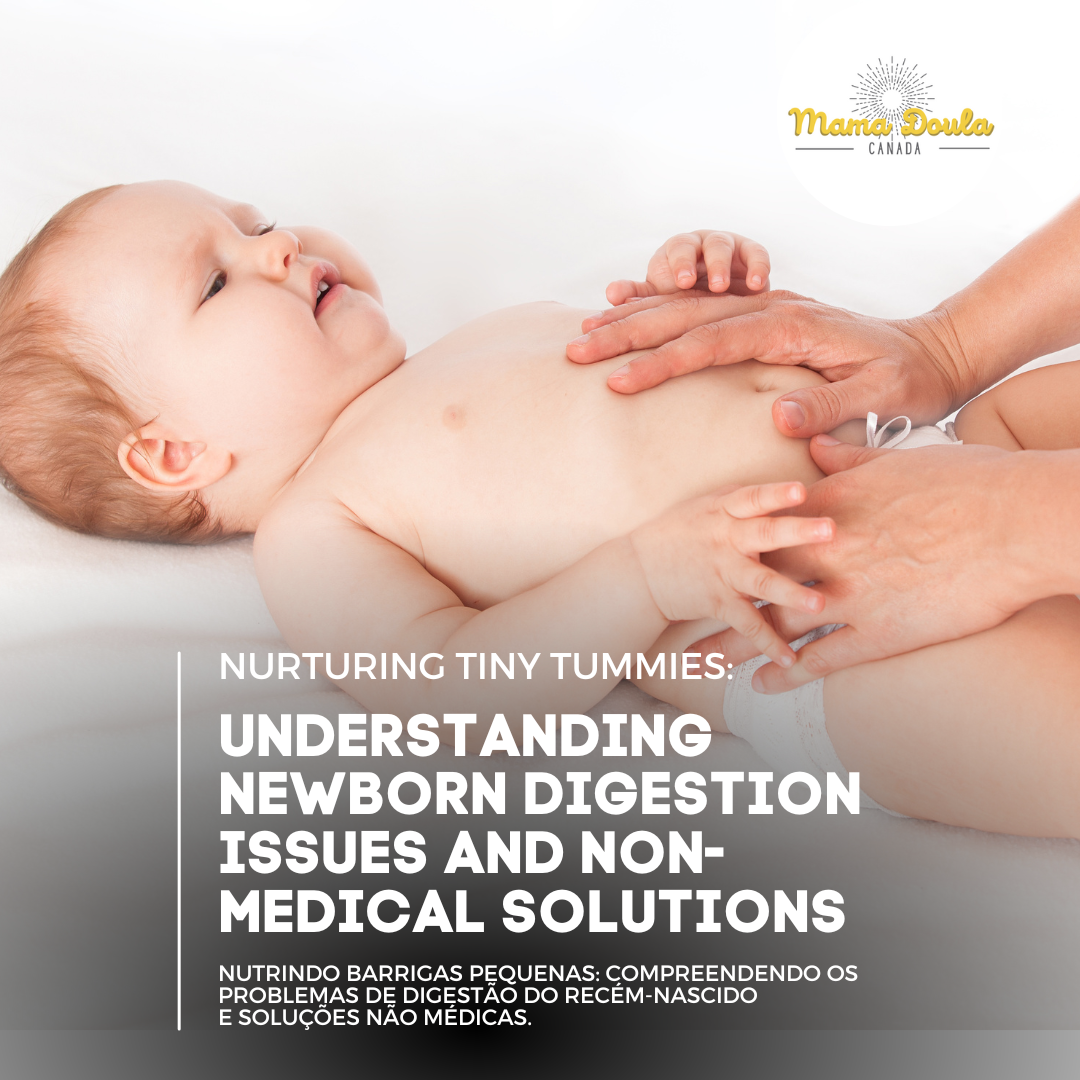Dar la bienvenida a un recién nacido al mundo es una alegría, pero también conlleva desafíos, especialmente en lo que respecta a su delicado sistema digestivo. Muchos padres se enfrentan a la complejidad de los problemas digestivos del recién nacido, desde cólicos y gases hasta reflujo y estreñimiento. Si bien a veces es necesaria la intervención médica, también existen enfoques alternativos, no médicos, que pueden brindar alivio tanto a los bebés como a sus cuidadores. En esta entrada del blog, exploraremos los principales problemas digestivos del recién nacido y analizaremos alternativas para abordarlos.
Cólico
Los cólicos son una preocupación común para los padres, ya que provocan períodos prolongados de llanto en bebés por lo demás sanos. Si bien se debe buscar consejo médico si los cólicos persisten, existen estrategias no médicas que pueden ayudar a aliviar los síntomas:
a. Masaje suave: masajear suavemente el abdomen del bebé en el sentido de las agujas del reloj puede ayudar a la digestión y brindarle comodidad.
b. Ruido blanco: crear un ambiente relajante con ruido blanco o sonidos suaves puede ayudar a distraer y calmar a un bebé inquieto.
c. Transporte y comodidad: sostener al bebé cerca en una posición cómoda, como en un portabebés, puede brindarle calidez y seguridad, reduciendo potencialmente los episodios de cólicos.
Gases e hinchazón
Los recién nacidos suelen tener problemas con gases e hinchazón debido a la inmadurez de su sistema digestivo. Los remedios no médicos incluyen:
a. Tiempo boca abajo: Incorporar períodos cortos de tiempo boca abajo puede ayudar a aliviar los gases y promover una digestión saludable.
b. Técnicas de alimentación adecuadas: garantizar un agarre adecuado y técnicas de alimentación adecuadas pueden minimizar la ingesta de aire durante la lactancia materna o la alimentación con biberón.
c. Agua para los gases: este remedio natural, que a menudo contiene hierbas como el hinojo y el jengibre, puede ayudar a aliviar los gases y el malestar.
Reflujo
El reflujo gastroesofágico (RGE) es común en los recién nacidos y provoca regurgitación después de comer. Las estrategias no médicas para controlar el reflujo incluyen:
a. Eructos frecuentes: Hacer una pausa durante la alimentación para hacer eructar al bebé puede ayudar a liberar el aire atrapado, lo que reduce la probabilidad de reflujo.
b. Elevar la cabeza: colocar al bebé en un ligero ángulo durante y después de la alimentación puede minimizar los episodios de reflujo.
c. Alimentación en posición vertical: mantener al bebé en posición vertical durante la alimentación puede reducir las posibilidades de que la leche fluya hacia el esófago.
Constipación
El estreñimiento puede ser angustiante tanto para los bebés como para los padres. Las soluciones no médicas para promover la regularidad intestinal incluyen:
a. Masaje abdominal: masajear suavemente la barriga del bebé con movimientos circulares puede estimular los movimientos intestinales.
b. Hidratación: si el bebé ha comenzado a ingerir alimentos sólidos, asegurarse de que esté adecuadamente hidratado puede ayudar a prevenir el estreñimiento.
c. Movimientos de piernas en bicicleta: Mover suavemente las piernas del bebé como si fuera una bicicleta puede promover la regularidad intestinal.
Si bien es fundamental consultar con profesionales de la salud en caso de problemas digestivos persistentes o graves en el recién nacido, la incorporación de enfoques no médicos puede brindar consuelo y alivio tanto al bebé como a sus cuidadores. Comprender las necesidades únicas del sistema digestivo del recién nacido e implementar estos métodos alternativos puede contribuir a una transición más fluida en las primeras etapas de la vida.

